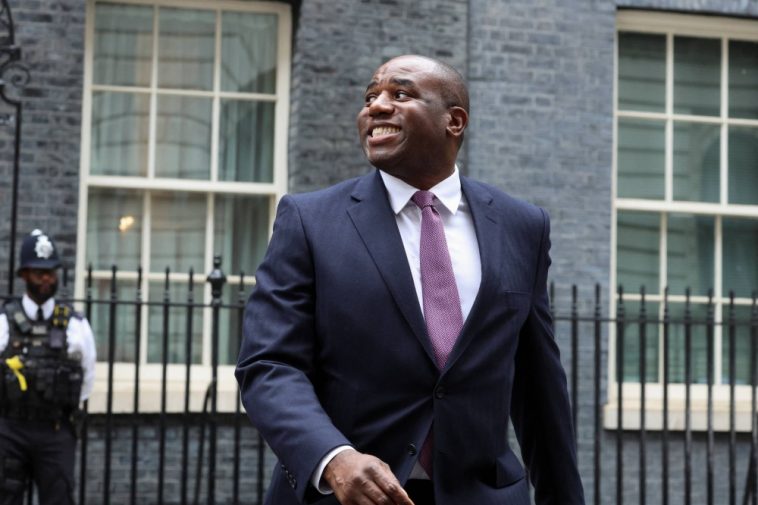David Lammy, the United Kingdom’s Foreign Secretary, has found himself on the receiving end of strong criticism from Syrian activist communities and human rights organizations. He sparked outrage over a suggestion implying that the UK government harboured an interest in initiating ‘upstream schemes’ with Syria. This upset was voiced by those highlighting the real-life, non-negotiable dangers in the nation and it’s government’s ongoing history of detaining substantial numbers, inclusive of those who risk returning.
Echoing the sentiments of the distressed community, Sara Afshar, noted documentary film director responsible for ‘Syria’s Disappeared’, expressed her shock regarding Lammy’s public conjecture. Sharing a personal connection, she narrated a horrific tale involving her friend who was an unfortunate victim of torture, whisked away promptly upon return by the Assad regime and has since vanished, leaving behind an unsolved mystery and increasing the toll of missing individuals.
In her words, ‘The plight of those who have disappeared is far from insignificant. They are more than just a number, over 100,000, with children being no exception.’ This anaemic situation was confirmed and reinforced by Ranim Ahmed, The Syria Campaign’s communication director. Speaking with The New Arab, she drew parallels between Lammy’s suggestion to a predecessor scheme that was abandoned due to its discriminatory nature.
‘Our primary obligation is to ensure the protection of refugees. It’s vital to remember that seeking asylum is a basic human right and not an unlawful act’, Ahmed emphasized, ‘One should never face adverse consequences for their pursuit of security and an improved quality of life, especially those escaping hostile and oppressive environments in their homelands.’
In an interview with Laura Kuenssberg for BBC’s Sunday segment, Lammy clarified that the UK government was eager to explore options similar to Italy’s strategies, which incorporated ‘upstream schemes’ with not only Albania but potentially with Syria and Libya as well.
Syria is currently mired in one of its most severe humanitarian crises since the war’s genesis. As per the United Nations, an estimated 500,000 lives have been lost in this brutal warfare beginning in 2011, with many casualties a result of the regime’s indiscriminate attacks on civilian regions and heavy-handed suppression of dissenters.
In a conversation with The New Arab, The Foreign, Commonwealth and Development Office reassured that the British government stands firm in its decision not to engage with the Assad regime. Lammy’s remarks do not indicate UK’s willingness to completely adopt Italy’s strategy. The speculative conversation concerning ‘upstream schemes’ with Syria reportedly occurred after UK Prime Minister Keir Starmer’s tour to Italy.
Italy’s strategy to manage asylum claims via preventive ‘upstream schemes’ with Tunisia, Libya and Albania was the main agenda during Starmer’s meeting with Georgia Meloni, the Italian Prime Minister. These schemes have resulted in significant reduction of crossings initiated from these countries aimed towards Italy.
Starmer relayed his opinions saying, ‘Taking measures to prevent people from having to leave their country of origin is a superior strategy than managing those who have already arrived.’ Reflecting positively on their discussion, he added that the day represented a return to ‘British pragmatism’.
The European Union’s border agency, Frontex, has noted a significant decrease of 64 percent in the frequency of crossing over the central Mediterranean since early 2024, a chunk of which is destined for Italy. Despite this encouraging statistic, Lammy’s comments on prospective links with Syria have stoked fresh conversations.
July witnessed a handful of European nations including Syria, reconsider their stance on policies towards Syrian refugees and asylum seekers. An open letter from the foreign ministers of eight countries, including Austria, Croatia, Cyprus, the Czech Republic, Greece, Italy, Slovakia and Slovenia, urged the EU to reassess its policies involving Syria.
Specifically, proposals were made around restructuring relations with the Assad regime, which have been strained since the war onset, and facilitating the return of Syrian refugees by enhancing living conditions in Syria. Yasmen Almashan, president of Caesar Families Association, expressed concern to The New Arab alleging European countries of using the migrant crisis as a scapegoat for their internal political and economic issues.
Al Mashan explained that the desire of refugees for a safe return is significant, but the act itself remains an untenable dream as the security situation in Syria continues to be dire. ‘The prevailing fear of detention and torture after repatriation is a major deterrent for many Syrians to return home,’ he lamented, validating his concern with instances documented by the UN Fact Finding Mission on Syria.


